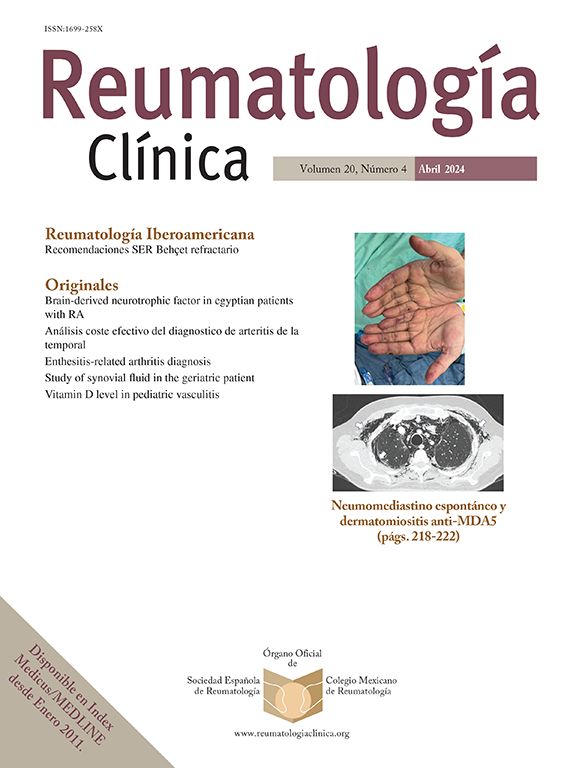Determinar la posible relación entre los genotipos Val158Met del gen catecol O-metiltransferasa (COMT) y la severidad del síndrome de fibromialgia (FM).
Pacientes y métodosEl estudio incluyó 110 pacientes de edades comprendidas entre 45 y 55 años diagnosticados de FM (ACR 1990) y 110 muestras de controles sanos sin dolor ni fatiga anormal (Banco Nacional de ADN). Como medida de gravedad de la FM se utilizó el cuestionario de impacto de fibromialgia (FIQ), y se estableció el valor FIQ≥70 para determinar FM severa, criterio que cumplieron el 35,5% de pacientes. Los polimorfismos se analizaron mediante técnicas de reacción en cadena de la polimerasa (PCR) estándar. Todos los grupos cumplían el equilibrio de Hardy-Weinberg.
ResultadosLa frecuencia del genotipo Met/Met es más baja en controles (20,9%) que en casos (34,5%), mientras que la de Val/Val es más alta en controles (30,9%) que en casos (20,0%), y las diferencias son significativas (p=0,048). Los valores medios de FIQ son más altos en los genotipos Met/Met (71,67) y Val/Met (68,27) y más bajos en el genotipo Val/Val (58,93). El test de Tukey de comparaciones múltiples indica que los valores de FIQ presentan diferencias significativas cuando se compara Met/Met/Val/Val (Tukey, p<0,001) y Val/Val/Val/Met (Tukey, p=0,003).
ConclusionesNuestros resultados parecen indicar que el genotipo Met/Met está asociado a cuadros clínicos de FM más graves.
To determine the possible relationship between Val158Met genotypes of the COMT gene and the severity of fibromyalgia (FM) syndrome.
Patients and methodsThe study included 110 patients aged between 45 and 55 years old diagnosed with FM (ACR, 1990) and 110 samples from control subjects with no pain and no abnormal fatigue (National DNA Bank, Spain). To measure the severity of fibromyalgia, the Fibromyalgia Impact Questionnaire (FIQ) was used. Severe FM was defined as an FIQ of ≥ 70 and was found in 35.5% of the patients. Polymorphisms were analyzed using standard polymerase chain reaction techniques. All the groups met the Hardy-Weinberg equilibrium.
ResultsThe frequency of the Met/Met genotype was lower in controls (20.9%) than in patients (34.5%), whereas that of the Val/Val genotype was higher in controls (30.9%) than in patients (20.0%), with significant differences (p=0.048). The mean FIQ values were higher in the Met/Met genotypes (71.67) and Val/Met genotypes (68.27) and were lower in the Val/Val genotype (58.93). Tukey’s multiple comparison test indicated that FIQ values presented significant differences when Met/Met/Val/Val (Tukey, p<0.001) and Val/Val/Val/Met (Tukey, p=0.003) were compared.
ConclusionsOur results appear to indicate that the Met/Met genotype is associated with greater severity of FM symptoms.






